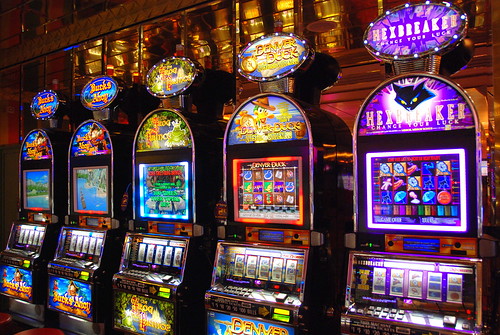We retired Tax Justice Blog in April 2017. For new content on issues related to tax justice, go to www.justtaxesblog.org
Opposition to broad-based tax increases has caused state lawmakers  to look, with increasing urgency, for additional revenue-raising opportunities outside of the income, sales and property taxes that form the backbone of most state tax systems. One of the most popular alternatives to those major revenue sources is state-sponsored gambling. But gambling revenues are rarely as lucrative, or as long-lasting, as supporters claim.
to look, with increasing urgency, for additional revenue-raising opportunities outside of the income, sales and property taxes that form the backbone of most state tax systems. One of the most popular alternatives to those major revenue sources is state-sponsored gambling. But gambling revenues are rarely as lucrative, or as long-lasting, as supporters claim.
A recent Las Vegas Sun article, Nevada’s tax income from gaming well below other markets, shows clearly that gambling revenues aren’t a dependable revenue stream. For many years, Nevada enjoyed a bit of a monopoly on the gaming market, but in recent years others states have begun to adopt their own forms of legalized gambling. Not surprisingly, “gaming latecomers have lured potential customers away from Nevada, and are now surpassing the Silver State in the tax dollars they generate for the state and local governments that sanctioned them.”
Nevada’s loss of gaming revenues is particularly dangerous because the state levies no corporate or personal income tax and is disproportionately reliant on gambling as a funding source.
Nevada’s tax structure problems don’t start or end with gambling, but it’s clear that as gambling revenues decline it’s going to become even more imperative that lawmakers come together to push for real tax reform that likely involves the implementation of a corporate and personal income tax.
For more on the perils of state sponsored gambling read ITEP’s policy brief on the issue.
Photo of slot machines via Raging Wire Creative Commons Attribution License 2.0